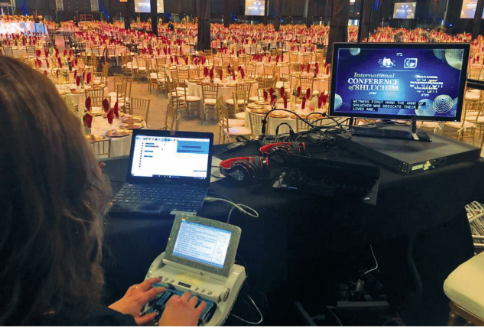
By Rivka Teich
On Sunday, Nov. 24, I stepped out of my comfort zone. I did my very first closed captioning event.
Let me give you some background. My name is Rivka Teich, and I am an Orthodox Jewish court reporter. As a matter of fact, I am the only Orthodox Federal reporter in the country. I’ve been a court reporter for the last 20+ years, with nearly all of those years in Federal court. I’m currently in Brooklyn, Eastern District of New York. I do realtime every day and hold NCRA’s Registered Merit Reporter and a realtime certificate. I’m comfortable and confident in my work every day.
The event I captioned was the Gala Banquet put on by Chabad Lubavitch headquarters. Chabad Lubavitch is one of the largest global Jewish organizations. They have emissaries (rabbis and their families) who are in all parts of the world, including more than 100 countries and in every state in the United States. These rabbis create a Jewish community and atmosphere, providing Jewish activities and classes, establishing schools, and providing kosher food. The list could go on and on.
And once a year all of these rabbis, more than 5,000, come back to their base (Crown Heights, Brooklyn) for a long weekend of classes, seminars, and encouragement from one another. And at the end of the weekend, on Sunday, they have a beautiful, uplifting Gala Banquet. At this banquet, all the rabbis join, many bringing their friends and people from their community along, raising the attendance to close to 6,000 people, making it the largest rabbinical conference in the world.
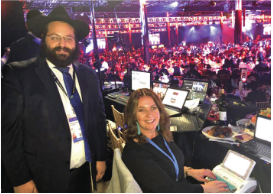
One of those 5,000 rabbis is Rabbi Yehoshua Soudakoff. And he is deaf. Soudakoff is originally from California and currently lives in Israel with his wife, Cheftziba, who is also deaf. Together they run the Chabad for the Deaf and Hard of Hearing Community in Rishon L’tzion. The name of their organization is Chushima, which is a reference to the Biblical figure, Chushim Ben Dan, who was deaf; additionally, the word Chushim in Hebrew means senses.
For Soudakoff to fully participate and enjoy the evening with his fellow rabbis, the CART was displayed on the screens around the exposition hall. The Ruderman Chabad Inclusion Initiative funded the closed captioning and helped guide these efforts for the past five years. In addition to the screens in the room for the 6,000 people to watch, it was also being broadcast live on the internet for those watching at home (100,000+ people) with closed captioning.
This was a big deal. And it was not simple to hire just any CART captioner, because about 40 percent of the words were not in English. They were a mix of Hebrew and Yiddish and a slew of phrases and words that are commonly spoken between Orthodox Jews. The reporter had to be someone familiar with that lexicon and ready for it. So that definitely narrows down the pool.
In the past another reporter, Rikki Woonteiler of Brooklyn, N.Y., who is a CART captioner, did the captioning. But she was out of the country, and so the organizers reached out to me.
I strongly believe that you need to keep challenging yourself and improving. Yes, it’s nice to float along and to be comfortable in your work, but not too comfortable. And that was how I was starting to feel day to day at work, too comfortable. Give me a narcotics trial, a securities fraud trial, a terrorist trial — and I got it! But this was a whole new territory for me with words and phrases that I hardly hear or write at work.
So, naturally, I accepted. Now came the hard work.
I was given most of the speeches ahead of time. And so I wrote them, and wrote them, and wrote them again. Over and over and over again. I also went back to previous banquets online and practiced past speeches. I put more than 700 words into my case-specific dictionary. I was definitely doing my homework and being as prepared as can be.
In addition to the physical practicing, I had to figure out my software and work with the IT people at the convention to change over from court reporting software to captioning software. That was a whole new world for me, too. That took time. And there was a lot of trial and error. Of course, I did not wait until game day, and it all went smooth when we hooked up at the event.
Yes, I had the speeches, but – spoiler alert – most people did not stay on script. As a matter of fact, there was an entire Q&A before the evening of an interviewer going around the room and asking participants where they are from and some questions.
There was a lot of quick thinking. Realizing I didn’t have a specific name in my dictionary, I had to finger spell it. And these are not “John Smith” names, but rather “Rabbi Shmuel Yitzchak Jenkelowitz from Krgyzstan.” That was fun!
Plus if a Hebrew word or phrase was said that I hadn’t prepared for, I would write the English of it instead. So it wasn’t just hearing words and writing them. There was a lot of analyzing going on all at the same time.
Right before we started, Soudakoff came over to me with his ASL interpreter to thank me. That was so special. That was a clear reminder of why the closed captioning was so important. As Soudakoff said on social media: “Accessibility is not just for those who need it. Accessibility brings together an entire community and includes all of its members. That’s why I’m thrilled that the captioning won’t just be in front of me at the Chabad Emissaries Gala Banquet I’m attending tonight. It will be on the screens around the room – sending a message of community-wide inclusion and unity.”
Was I nervous? Yes, yes, yes. It was all so new compared to what I’m used to and confident at. But in the end, that was the biggest accomplishment for me: I put myself out there and I did it. And I did it well. I have been thinking of moving into the closed captioning world but hadn’t done it ever; and now I jumped in with two feet, in the deep end. And I made it!
My take-away is: Go out of your comfort zone. Put yourself out there. Take a leap of faith. It will be uncomfortable, but you’ll gain the confidence that you did it.
Rivka Teich, RMR, is an official court reporter in Brooklyn, N.Y.
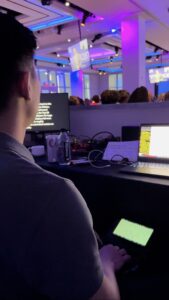

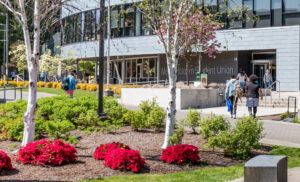


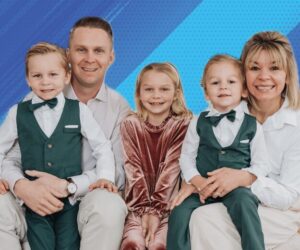


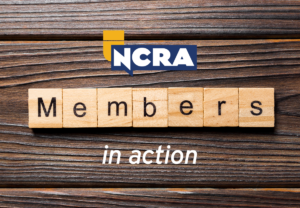
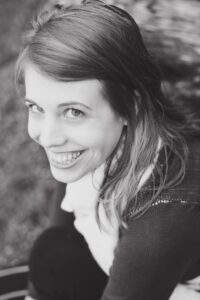
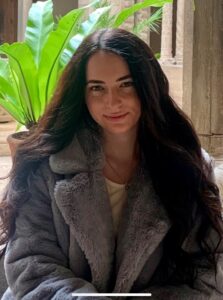
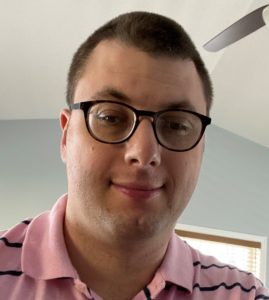
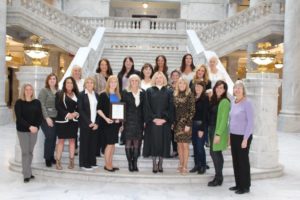
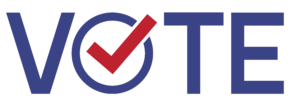
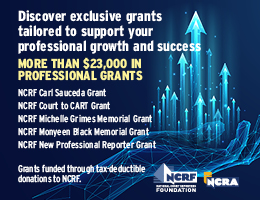

[…] Here’s an article by Rivka Teich, RMR, an official court reporter in Brooklyn, NY, about the process (first published on TheJCR.com): […]